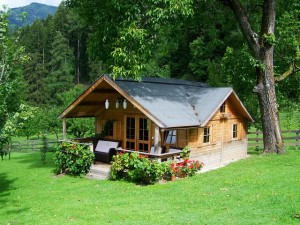Some Retirees Save a Great Deal of Money by Doing So; Others Do Not

You want to retire, and you own a large home that is nearly or fully paid off. The kids are gone, but the upkeep costs haven’t fallen. Should you retire and keep your home? Or sell your home and retire? Maybe it’s time to downsize.
Lower housing expenses could put more cash in your pocket. If your home isn’t paid off yet, have you considered how much money is going toward the home loan? When you took out your mortgage, your lender likely wanted your monthly payment to amount to no more than 28% of your total gross income, or no more than 36% of your total monthly debt repayments. Those are pretty standard metrics in the mortgage industry.1
What percentage of your gross income are you devoting to your mortgage payments today? Even if your home loan is 15 or 20 years old, you still may be devoting a significant part of your gross income to it. When you move to a smaller home, your mortgage expenses may lessen (or disappear) and your cash flow may greatly increase.
You might even be able to buy a smaller home with cash (if finances permit) and cut your tax liability. Optionally, that smaller home could be in a state or region with lower income taxes and a lower cost of living.
The lifestyle reasons to downsize (or not). Maybe your home is too much to keep up, or maybe you don’t want to climb stairs anymore. Maybe a condo or an over-55 community appeals to you. Maybe you want to be where it seldom snows.
On the other hand, you may want and need the familiarity of your current home and your immediate neighborhood (not to mention the friends close by).
Sometimes retirees underestimate the cost of downsizing. Even the logistics can be expensive. As Kiplinger notes, just packing up and moving a two-bedroom condominium’s worth of furniture will cost about $1,500 if you are resettling locally. If you are sending it across the country, the journey could take $5,000 or more. If you can’t sell or move everything, the excess may go into storage, and the price tag on that may be well over $100 a month. In selling your home, you will probably pay commissions to both your agent and the buyer’s agent that add up to 6% of the sale price.2
Some people want to retire and then sell their home, but it may be wiser to sell a home and then retire if the real estate market slows. If you sell sooner instead of later, you can always rent until you find a smaller house that could save you thousands (or tens of thousands) of dollars over time.
Run the numbers as accurately as you think you can before you make a move. Downsizing always seems to have a hidden cost or two, but for many retirees, it can open a door to long-term savings. Other seniors may find it cheaper to age in place.
Email or call us at (719) 630-0600




